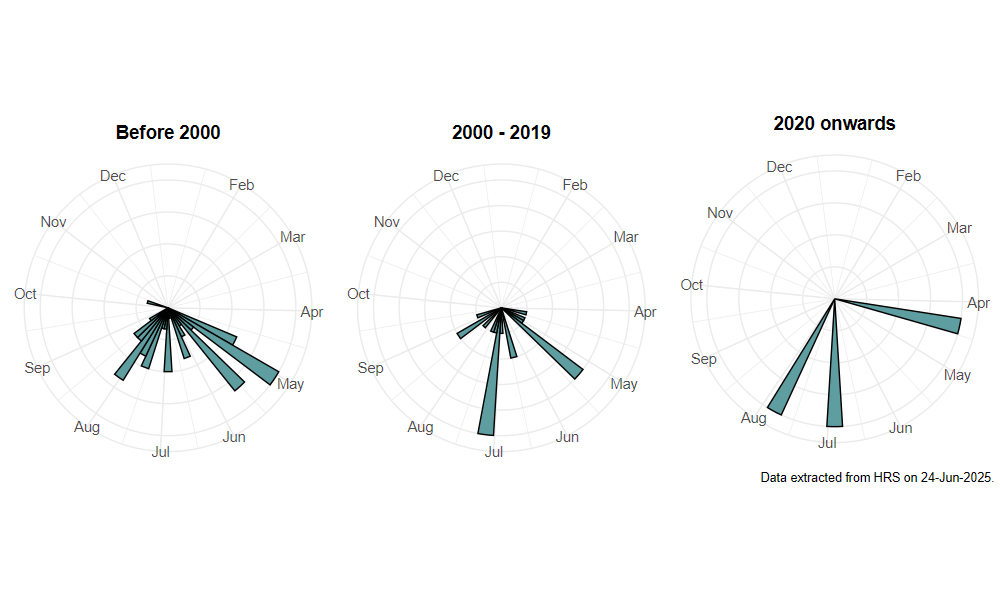Neocnemodon latitarsis (Egger, 1865)
Identification
Identification difficulty = 3. ![]()
![]() according to Ball & Morris, 20241
according to Ball & Morris, 20241
Synonymy
Cnemodon latitarsis Egger in Coe(1953)2, Neocnemodon latitarsis (Egger) in Stubbs & Falk (1983)3.
Biology
The larva is aphidophagous and has been found attacking the woolly aphid Dreyfusia picea on Firs Abies sp. It has also been found feeding on aphids on Apple Malus sp., Poplar Populus sp. and Elm Ulmus sp. This species has been recorded from mature coniferous and mixed woodlands. Adults can be found visiting flowers (e.g. Cow Parsley Anthriscus sylvestris, Blackthorn Prunus spinosus, brambles Rubus sp., and Dog Rose Rosa canina along woodland rides and edges and settled on sun-lit leaves. Speight (2017)4 describes them as largely arboreal, but descending to visit flowers.
Flight period
The following plots show the number of unique records per week excluding those reported to be of immature stages.

Status
Lower risk (Nationally scarce) - Ball & Morris, 20145. Notable - Falk, 19916.
Distribution
Widely distributed across southern England and Wales as far north as South Yorkshire and South Lancashire. There is a record from Midlothian but the data accompanying it are poor, with no locality name, recorder or date. There are post-1990 records from Dorset, Surrey, East Kent, Nottinghamshire and South-west Yorkshire.

-
Ball, S., & Morris, R. (2024). Hoverflies of Britain and Ireland. WILDGuides (3rd ed.). Oxford: Princeton University Press. ↩
-
Coe, R. (1953). Diptera: Syrphidae. Handbooks for the Identification of British Insects, 10(1), 1–98. ↩
-
Stubbs, A., & Falk, S. (1983). British Hoverflies: An Illustrated Identification Guide (1st ed.). Reading: BENHS. ↩
-
Speight, M. (2017). Species accounts of European Syrphidae ( No. 97). yrph the Net, the database of European Syrphidae (Diptera) (p. 294). Dublin: Syrph the Net publications. Retrieved from https://pollinators.ie/wordpress/wp-content/uploads/2018/05/StN-2017-Species-Accounts.pdf ↩
-
Ball, S., & Morris, R. (2014). A review of the scarce and threatened flies of Great Britain. Part 6: Syrphidae. ( No. 9). Species status (pp. 1–130). Peterborough: JNCC. ↩
-
Falk, S. (1991). A review of the scarce and threatened flies of Great Britain. ( No. 39). Research and Survey in Nature Conservation (pp. 1–194). Peterborough: NCC. ↩